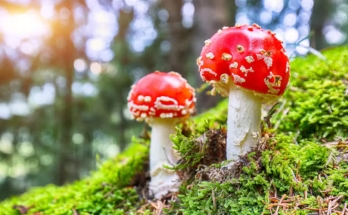Gardening is often celebrated for its ability to beautify spaces and provide fresh produce, but its benefits extend far beyond these physical rewards. For many, gardening serves as a powerful form of depression therapy, offering mental health benefits that are both unique and profound.
In this article, we’ll explore how immersing oneself in the acts of planting, nurturing, and growing can serve as a therapeutic tool for those battling depression.
The Therapeutic Power of Nature
One of the core reasons why gardening is so effective in managing depression is its ability to connect us with nature. Being outdoors and getting your hands dirty allows you to engage with the earth and experience a tangible connection to the cycle of life.
Research shows that exposure to green spaces can lower stress levels, enhance mood, and even improve self-esteem. Engaging in gardening activities can also reduce symptoms of depression and anxiety.
The simple act of caring for plants encourages responsibility and routine, which are important aspects of mental health recovery.
Physical Activity and Mental Health
Gardening is not just a mental and emotional exercise; it’s also a physical one. The activities associated with gardening, such as digging, planting, weeding, and watering, require physical effort which can help release endorphins, the body’s natural mood lifters.
Physical activity is as effective as antidepressants in treating mild to moderate depression. Therefore, gardening can be a valuable part of a comprehensive treatment plan, providing both physical and emotional benefits to individuals dealing with depression.
Mindfulness and Living in the Moment
Gardening can also be a practice in mindfulness, which has been recognized as an effective treatment for depression. The focus required to sow seeds, prune branches, or harvest vegetables can keep you in the present moment, helping to distract you from negative thoughts and worries.
The repetitive nature of many gardening tasks provides a space to develop a meditative routine, where one can focus on sensations like the feel of soil in the hands, the smell of the flowers and herbs, and the sounds of the environment.
A Sense of Achievement and Control
Depression often leaves individuals feeling powerless or hopeless. Gardening combats these feelings by providing a sense of control.
As you tend to your garden, you make decisions about the care of your plants such as choosing what to plant and where to plant it, to deciding the daily care routines. Each decision impacts your garden’s growth and health, reflecting the effort you put in.
Moreover, seeing the tangible results of your labor can boost your confidence and self-esteem. Whether it’s a blooming flower, a sprouting seed, or a ripe vegetable, each milestone in your garden is a testament to your capabilities and effort.
Conclusion:
Gardening is a blend of physical, mental, and emotional benefits that can make it an excellent form of therapy for those struggling with depression. It is a powerful way to improve one’s mental health through active participation in nature, physical activity, and mindful practice.
If you or someone you know is battling depression, consider integrating gardening into your recovery process. It might just provide that breath of fresh air needed to see the world in a brighter light.




